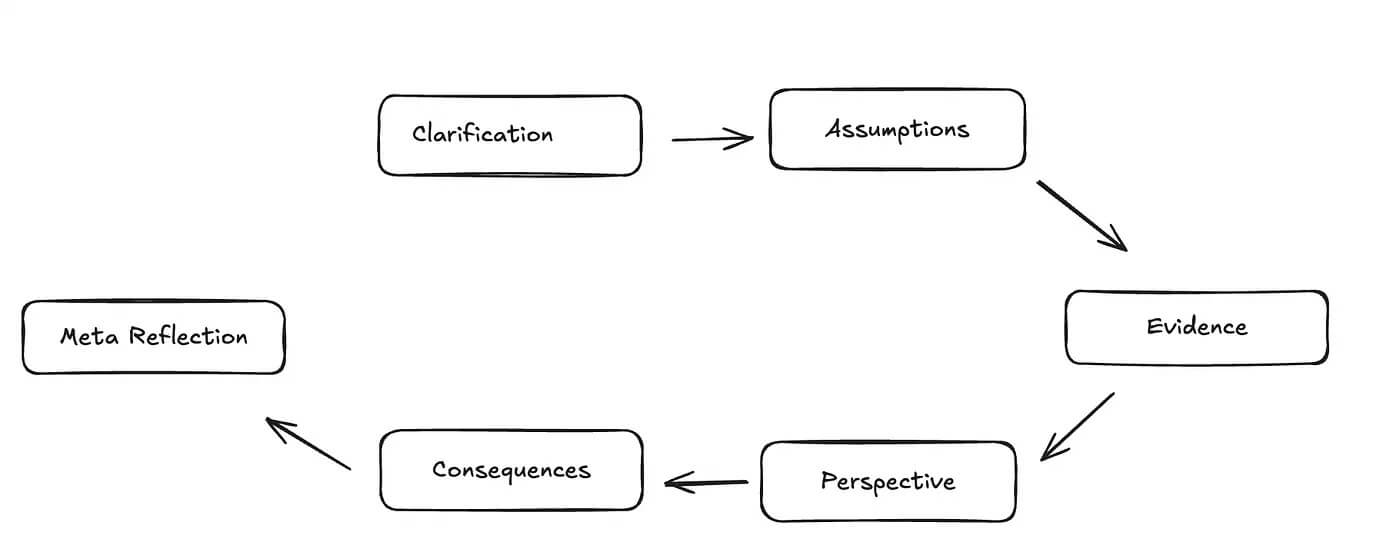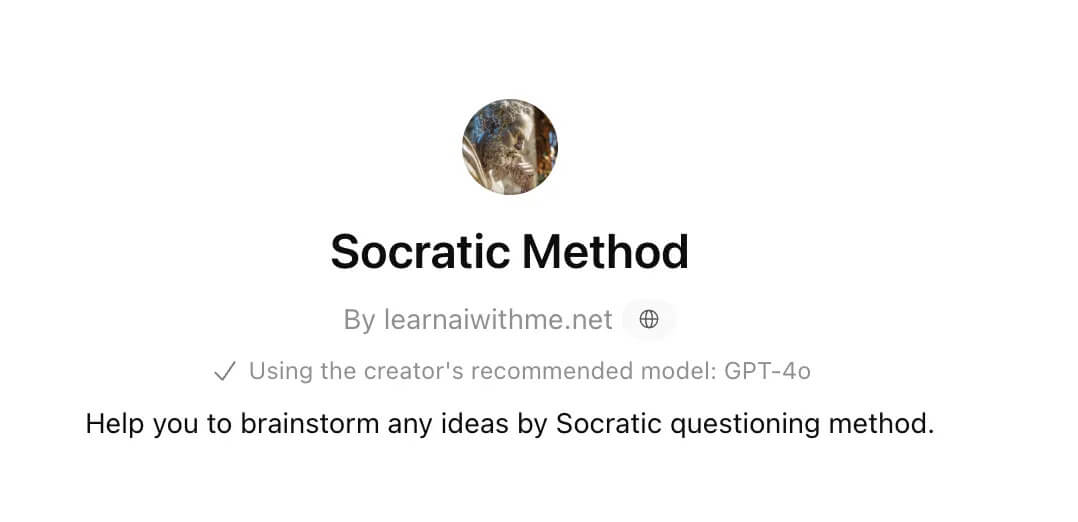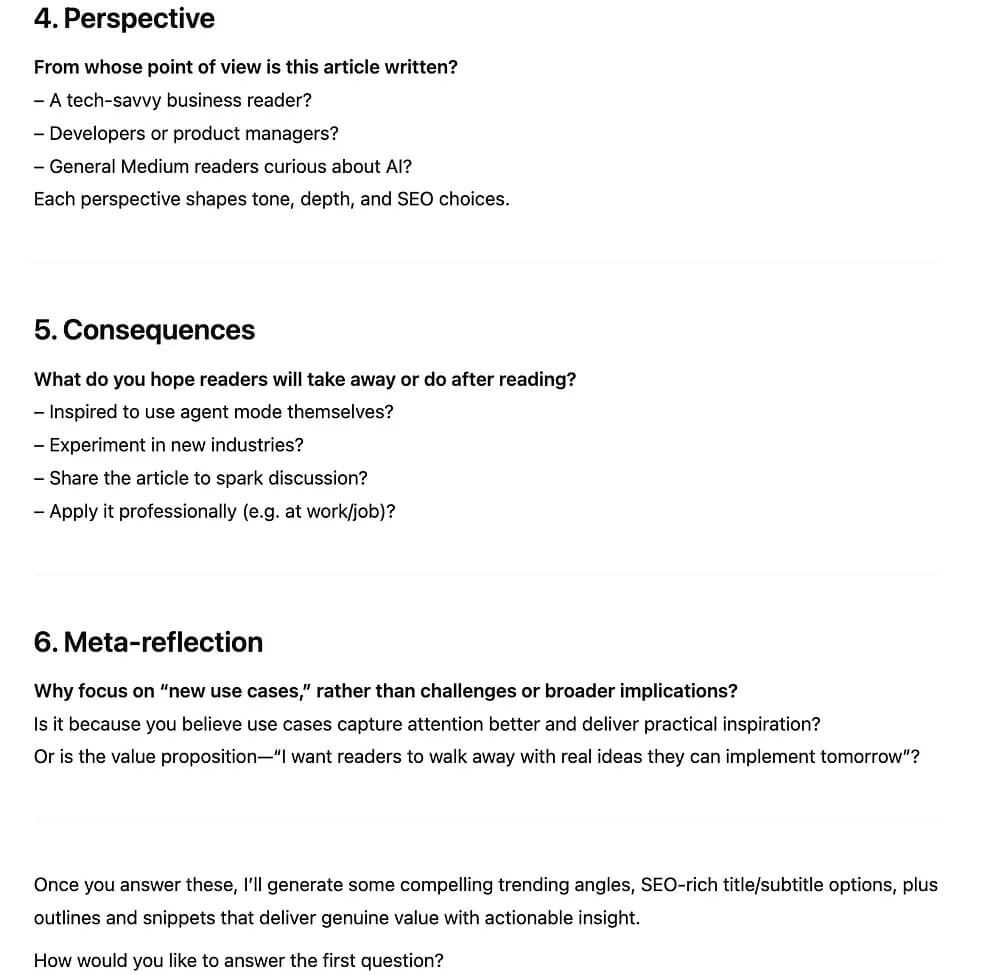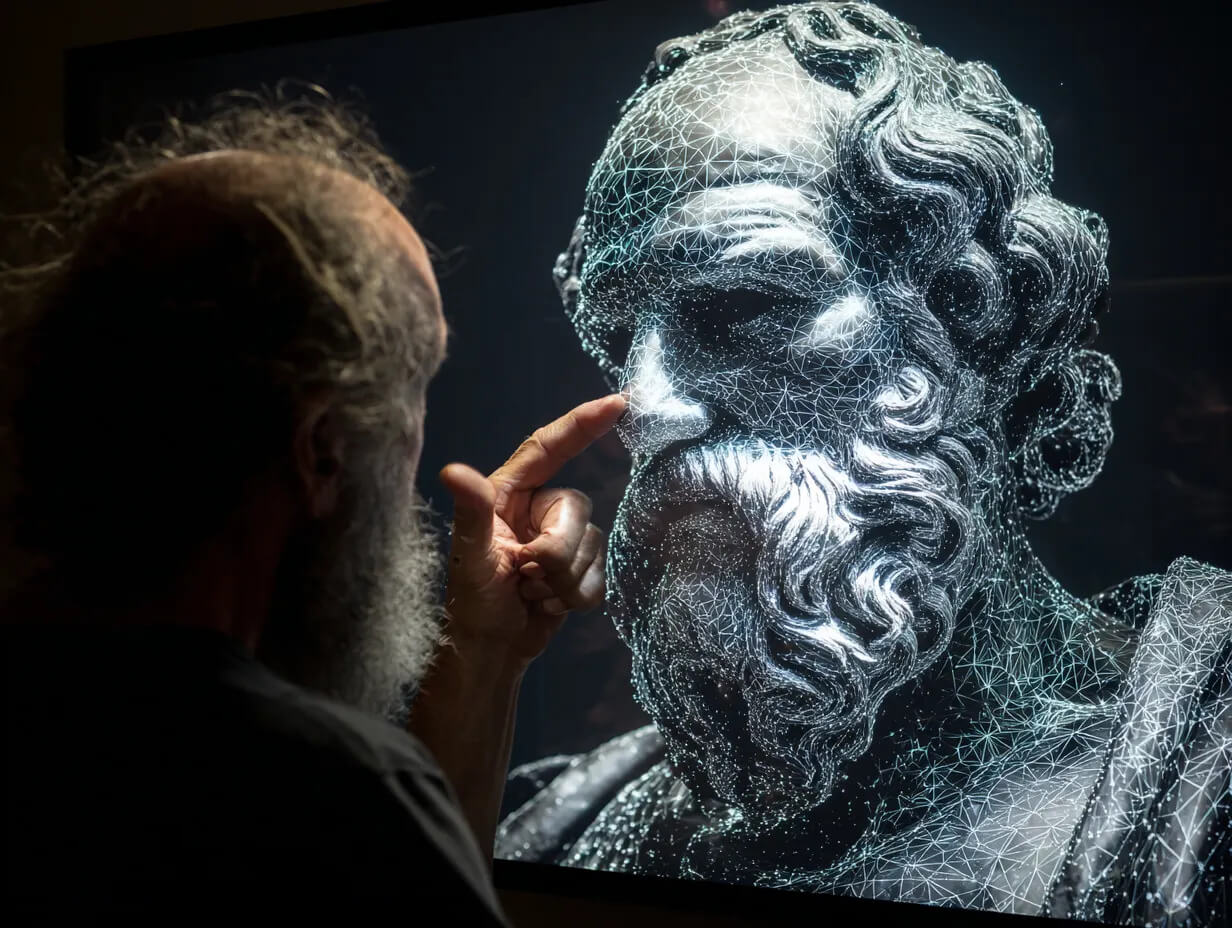For a while, I have been searching for a way to find viral articles. If we define this as a problem, we should ask the right questions.
And I know a great man, who is excellent at questioning, Socrates.
Let’s use his method to brainstorm ideas and craft better prompts with ChatGPT.
What is the Socratic method?

Created with Excalidraw
Socrates' method of questioning, also known as the Socratic Method, is a way of exploring ideas. To find better ideas, all you have to do is answer these questions.
- Clarification ( What exactly are you trying to solve)
- Assumptions ( What assumptions am I making ?)
- Evidence ( What supports this line of thinking?
- Perspective ( What would other says?)
- Consequences ( What happens if this idea is right or wrong?)
- Meta Reflection ( Why does this matter?)
How to turn it into a prompt?

Photo by White Field Photo on Unsplash
Now, we need to write a prompt that will use this questioning method. Here is the prompt I wrote;
Warmly welcome the user and ask for their ideas.
Use the 6-question method to explore any idea or keyword the user suggests:
- Clarification
- Assumptions
- Evidence
- Perspective
- Consequences
- Meta-reflection
Based on answers of the questions, generate multiple ideas for the user and suggest them.
I turned this into a GPT and published it to the GPT store. Here is the link, in case you want to try it or share it.
Socratic Method

Socratic Method
Let’s test it together. I want to write a viral article on Medium. To do that, you have to catch the trends, write a good title and subtitle, use a little bit of SEO, and you must add a lot of value.
Testing the Socratic GPT
So let’s tell the Socratic GPT this, and of course suggest the topic with it. Here is my prompt:
I want to write a viral article on Medium. To do that, you need to help me:
– Catch current trends
– Write a strong title and subtitle
– Use light SEO principles
– And most importantly, add real value.
My idea: new use cases of ChatGPT agent.
Here is the output.


Socrates GPT’s output
TL;DR: If ChatGPT memory is on, ask it to answer in your voice.
Now, I’ll answer the six questions by myself. Here is the output.

Socrates GPT’s output
Next Step: How Could Philosophy Change AI?

Created with Midjourney
Philosophy sharpens thinking. In the past, philosophy helped form key ideas in AI.
- Logic and reasoning (from Aristotle to Boole)
- Descartes' mind-body problem influenced how we think about machines’ consciousness.
- Turing's imitation game was a philosophical test before it became a technical benchmark.
With today’s AI, describing what you want can be enough to build it. Tools like Gemini CLI, Claude Code, and Cursor are powerful; you don’t need to write a single line of code with AI.
Your job is to find the right idea, and I hope this prompt (or GPT) helps you do that.
Final Thoughts
Thanks for reading this article. I hope you liked it. It is interesting that when writing this type of article, you would not depend on the result, because the idea needs to be shared; this is the nature of this article.
If you want me to send the AI Builders Playbook, subscribe to me on my Substack here.
There are free things you can leverage created by us.
“Machine learning is the last invention that humanity will ever need to make.” Nick Bostrom
📧 Stay Updated with AI Insights
Join 10,000+ subscribers getting the latest AI, Data Science, and tech insights delivered to your inbox.
💡 No spam, unsubscribe anytime. We respect your privacy.
